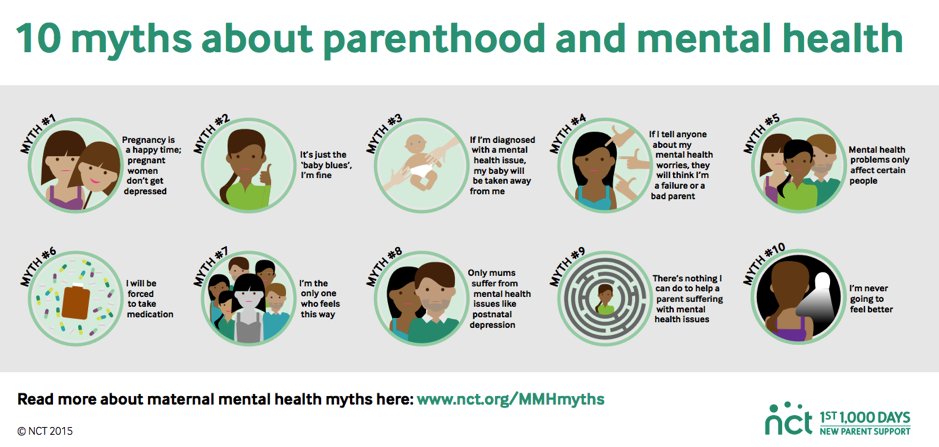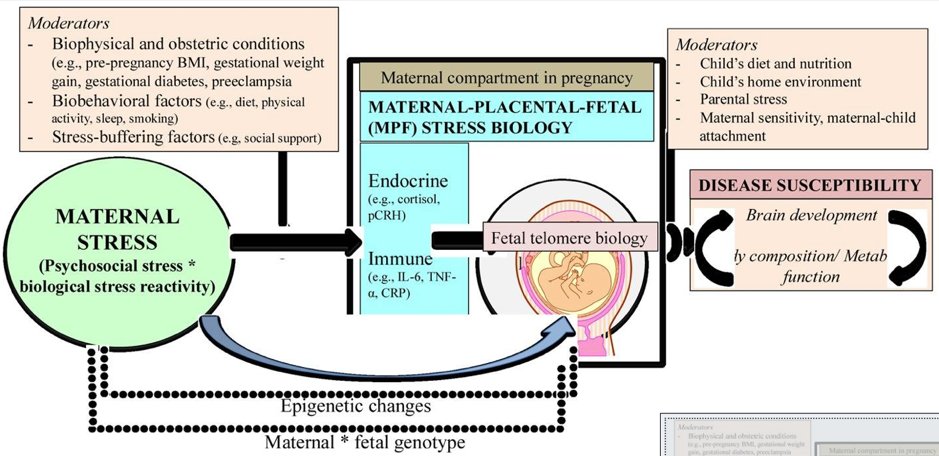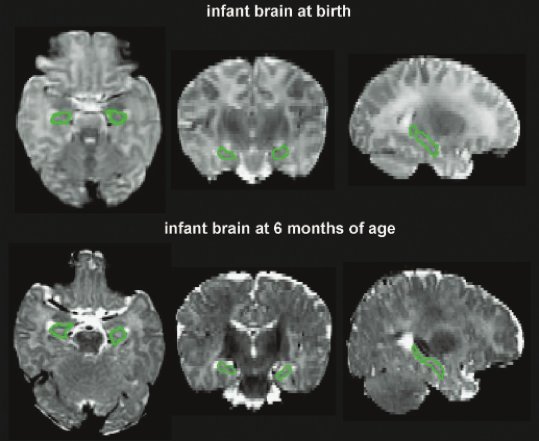10-20% of pregnant women experience depression and/or anxiety during the perinatal period. (peri=around, natal=birth). #MaternalMHMatters #PerinatalMentalHealth 

Maternal prenatal stress has been associated with a range of negative outcomes in the baby.. such as obstetric outcomes (e.g. preterm birth, low birth weight), emotional outcomes, behavioural outcomes and cognitive outcomes. Review: sciencedirect.com/science/articl…
The biological basis for this is still poorly understood. More research is needed in this area to help identify early markers (as well as protective factors) and to help inform early interventions to ensure the best possible outcome for the mother and the baby. 

Effects of maternal prenatal depression can be observed even before birth. e.g. Pregnant women were asked to complete a stressful computer task. In mothers who experienced anxiety, fetal heart rate increased during this task.
onlinelibrary.wiley.com/doi/abs/10.100…
onlinelibrary.wiley.com/doi/abs/10.100…
Some of these outcomes may be gender specific. It has been suggested that females born to mothers experiencing perinatal stress might experience higher rates of mood disorders/anxiety, while males may be more likely to experience negative behavioural outcomes.More research needed
Why do these changes happen? When experienced during critical early-life period, stress may lead to structural and/or chemical changes in the developing brain. A great review by @DScheinost at @Yale
nature.com/articles/pr201…
nature.com/articles/pr201…
Areas that seem to be affected by #PrenatalStress include the limbic system (e.g. amygdala and hippocampus), prefrontal cortex etc. Changes have been reported in the brain structure, function and microstructure of babies born to mothers experiencing prenatal #depression/#anxiety.
Some of these changes are not visible immediately. A really cool study done in Singapore (#GUSTO cohort) suggested that children of mothers experiencing perinatal anxiety showed slower growth of the hippocampus over the first 6 months of life 

However, most research has been conducted in early childhood or adolescence, which makes it difficult to determine whether these effects are due to prenatal or postnatal depression (or other factors!). This is where my PhD project comes in!
I will be using #MRI data collected as part of the @DevelopingHCP to look at the effect of maternal depression and anxiety on #fetal and #neonatal #brain development. Video on how the neonatal scans are done:
It is important to note that seeing changes in the fetal/neonatal brain does not necessarily mean that these changes will still be there in adulthood and it is unclear of whether/how they affect behaviour/cognition etc.
A large body of evidence suggests that the most important potential mediator is the quality of #parenting. e.g. Mothers with #PND (#postnatal #depression) who participated in #psychotherapy had better mother-infant interactions and reported fewer toddler behavioural problems
If you are experiencing mental health difficulties during #pregnancy (or know someone who is), help is out there: talk to your #GP,
pandasfoundation.org.uk (support groups), @mums_aid (non-profit providing counselling), rcgp.org.uk/clinical-and-r… (in the "Resources for women.."bit)
pandasfoundation.org.uk (support groups), @mums_aid (non-profit providing counselling), rcgp.org.uk/clinical-and-r… (in the "Resources for women.."bit)
I also want to emphasise the importance of using "people first"(e.g."person living with/experiencing depression" rather than "depressed") and non-stigmatizing (e.g. "sufferers") language when discussing mental health. @JJackson_RN #MMHMatters #EveryonesBusiness
Rant over. I'll still be here for the next week to answer any questions you might have. Also - please send any cool/relevant research on #perinatal #MentalHealth and offspring #neurodevelopment my way (My #PhDUpgrade is coming up soon!). #PhDChat -@AleLautarescu.
Link to episode again so you can all have it as part of the thread :)
soundcloud.com/kings-hsdtc/po…
soundcloud.com/kings-hsdtc/po…
• • •
Missing some Tweet in this thread? You can try to
force a refresh




